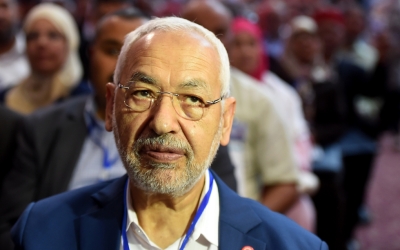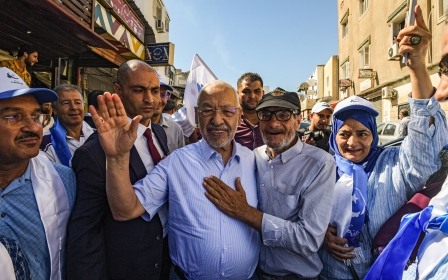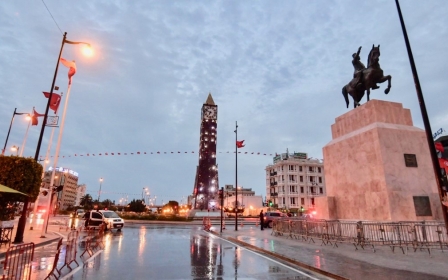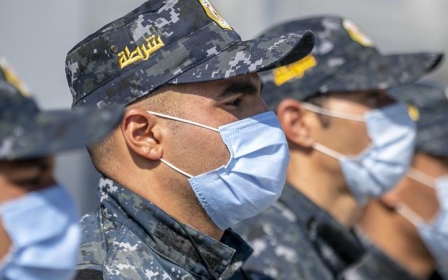Tunisia's Rached Ghannouchi wins libel case in UK High Court
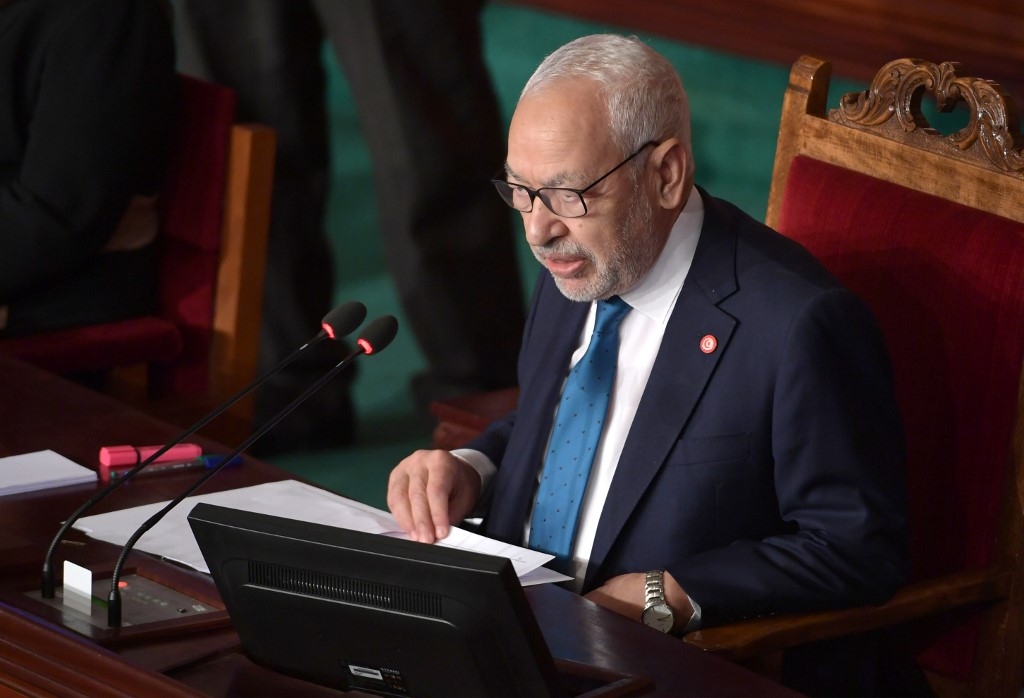
The UK's High Court ruled in favour of Tunisian politician Rached Ghannouchi in a libel case against the news website Middle East Online (MEO) and one of its editors after they claimed his political party supported terrorism, the law firm representing his case said.
Judge Matthew Nicklin ruled in favour of Ghannouchi's lawsuit in a default judgment late Thursday after MEO and its editor, Haitham El Zobaidi, failed to file a defence, court documents showed.
Ghannouchi's law firm, Carter-Ruck, said the court would hold another hearing on 10 June to assess damages owed to Ghannouchi for the legal fees incurred in the lawsuit.
The case against MEO and its editor was filed after a now-deleted article, published on 5 July 2019, had claimed that Ghannouchi's Ennahda party was a front for a terrorist organisation, Carter-Ruck said in a news release.
The firm said that the news website also claimed Ennahda had accepted funds from Qatar, which MEO suggested had allowed the Gulf country to exert improper influence over Tunisian politics.
Ghannouchi, who co-founded the Ennahda party and is Tunisia's speaker of parliament, vigorously denied the claims.
Carter Ruck said: "Mr Ghannouchi strongly denies these allegations, which are entirely false and gravely defamatory, and in relation to which he was not even asked for comment prior to publication.
"Mr Ghannouchi and his Party are deeply committed to the democratic process and have been at the forefront of and played a key role in establishing a democratic system in Tunisia, including pluralism and the sharing and alternation of power."
On Thursday, Ghannouchi welcomed the court's decision, with the Ennahda party saying the "defendant's failure to provide a defence" to the lawsuit only served to highlight "the baseless nature of the allegations".
"Mr Ghannouchi and his party are deeply committed to the democratic process and have been at the forefront of and played a key role in establishing a democratic system in Tunisia," the party said in the statement.
"This is evident in Mr Ghannouchi's numerous written publications and public lectures since the 1980s, which have centred on promoting a political system grounded in popular sovereignty and that protects civil and political rights and freedoms."
Middle East Eye has contacted MEO for comment but had not received a response at the time of publication.
'Systematic campaign'
Earlier this week, Anadolu Agency's Qatar correspondent, Ahmed Yusuf, highlighted what he called "a systematic campaign" against Ghannouchi from media backed by Saudi Arabia, the United Arab Emirates (UAE) and Egypt.
Yusuf said the media arms of all three countries had been publishing "simultaneous deceitful news" about the parliament speaker, including claims that he had "gained huge financial wealth since his return to Tunisia" in 2011.
Ghannouchi has denied such allegations and official financial documents obtained by the Arabi21 news website last week refuted the claims.
Ghannouchi and several other Tunisian intellectuals founded the Islamic Tendency Movement in 1981, which became Ennahda in 1989, after being inspired by Egypt's Muslim Brotherhood.
The party was persecuted under the government's of ousted leader Zein el-Abedine Ben Ali and that of his predecessor, Habib Bourguiba.
Ghannouchi was forced to live in exile in the UK for 20 years and returned home after the 2011 Arab Spring uprisings to a triumphant welcome, with Ennahda securing 37 percent of the vote in the county's first post-revolution election in 2011.
He became speaker of parliament in November, after Ennahda came first in October's parliamentary elections, securing 52 seats.
Middle East Eye propose une couverture et une analyse indépendantes et incomparables du Moyen-Orient, de l’Afrique du Nord et d’autres régions du monde. Pour en savoir plus sur la reprise de ce contenu et les frais qui s’appliquent, veuillez remplir ce formulaire [en anglais]. Pour en savoir plus sur MEE, cliquez ici [en anglais].


